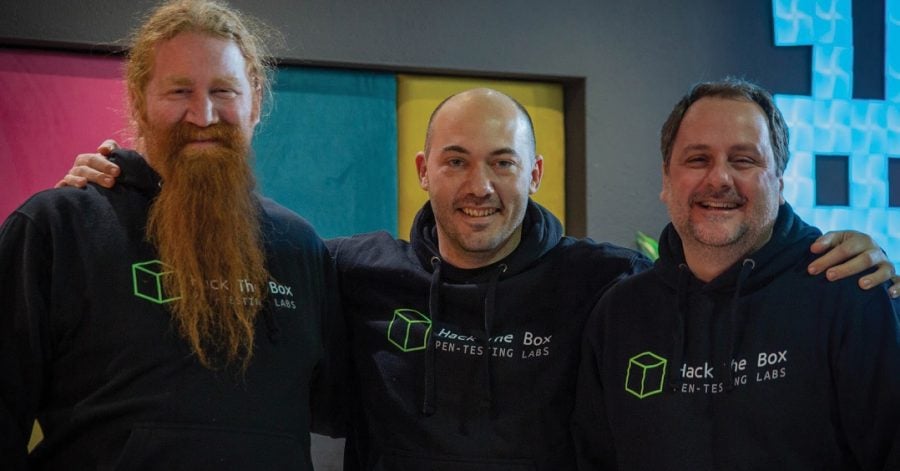Everything can be made easily understandable and captivating with gamification – even training in cybersecurity, and with this vision in mind, the Greeks Haris Pylarinos and Aris Zikopoulous, and the British James Hooker started the cybersecurity training startup Hack the Box, which recently closed its $10.6M Series A. The round was led by the US Paladin Capital Group with the participation of the venture capital firm that invests in spin-off startups from top universities and research centers – Osage University Partners, the first and biggest Edtech VC in Europe – Brighteye Ventures, and its existing early-stage Greek investor – Marathon Venture Capital, which has so far financed the startup with near $4M.
Hack the Box was launched with the idea that cybersecurity skills should be developed through hands-on practice rather than by reading books and obtaining certifications, and the co-founders did that by creating an online space, imitating a computer system that can be hacked into, and adding gamification features on top. The partners from Paladin Capital Group base their investment decision on the growing importance of using adversarial cybersecurity practices to counter attacks and protect companies, governments, and customers from hackers who constantly seek ways to advance their malicious methods. George Tziralis, who is a Partner at Marathon Venture Capital, notes that in the red market of cybersecurity solutions, Hack The Box has introduced a new category of adversarial training, and the success of the platform is owed to the culture that the strong co-founding team has created.
Building an ethical and authentic hacker culture
The online platform for cybersecurity training Hack the Box offers individuals, universities, and companies a chance to game up their hacking skills by giving them access to virtual experiential hacking labs where they learn by doing and rewarding them with points and badgers for advancing in their training. Additionally, it offers advanced analytics, solutions for talent acquisition and evaluation, and community engagement. For its 4 years of existence, the platform has gained more than 500 000 members with various levels of cybersecurity expertise, and around 800 public and private organizations including Fortune 500 companies. The platform contains more than 19 million hours of hacking simulation games and has over 10x annual recurring revenue since its launch. The team of Hack the Box currently consists of 88 employees, around half of which are situated in Greece.
When the platform was started in 2017, there was no signup button and users had to actually hack their way in order to become a member. Now, the computer systems simulation platform builds a new virtual machine each week and offers individual users monthly and annual subscriptions that give access to the training content, while for its enterprise users, the startup offers bi-annual and annual licenses with value-added features such as admin options.
Turning gamification into an industry standard
Very recently the startup introduced its new learning platform Hack the Box Academy with the vision to turn it into the new standard in the cybersecurity training and certification industry and has so far managed to attract more than 250 000 users. With this round, Hack the Box will be able to invest in expanding its operation to the US market and developing its product portfolio for both organizations and individuals. The founders also share that they will focus on R&D and expect to grow their team four times during the next 18 months so that they can accomplish their goals for product and market expansion.







